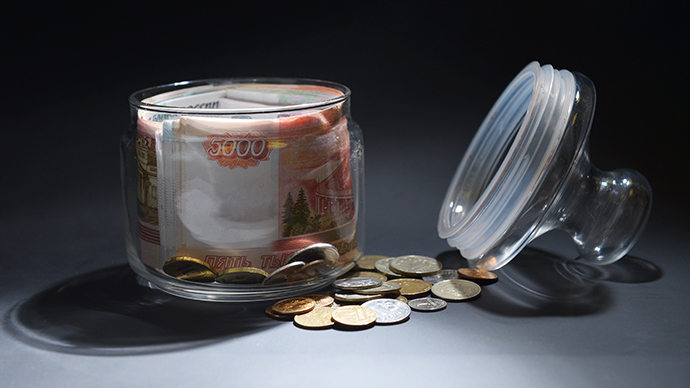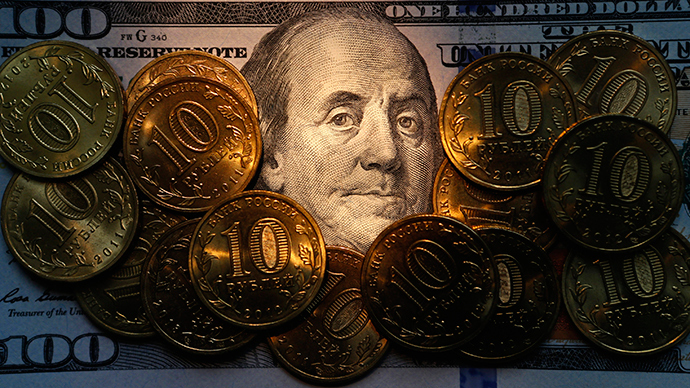‘Ruble drop- continuation of global credit crisis’

A global crisis has never ended, most of the Western states have enormous debts which they are not able to pay off, and the current collapse of the Russian currency is just its continuation, Mitch Feierstein, of Glacier Environmental Fund, told RT.
RT:Russia's Prime Minister, Dmitry Medvedev, said emotions were pushing the ruble down. Surely it can't all be down to panic, can it?
Mitch Feierstein: I think we’ve got a global credit crisis that never really ended. There are three main causes, too much credit and the excessive leverage caused by the main central banks around the world specifically the Fed, The Bank of England and The Bank of Japan creating the liquidity. Now we’ve got a bit of a crisis. It started in Venezuela with our currency going almost to zero. And it spread throughout all the oil producing nations as we saw the precipitous drop in oil prices. So what happened now: whenever a market reaches an all-time peak or a new euphoric high based on nothing but money printing you see it carried to an extreme.
I think the sell-off is very extreme in Russia. I would dip my toe into the water at the 79 level which was the high. You have got a great opportunity for those who like emerging markets to get in to some companies that make substantial profits at extremely discounted prices right now. I think the central markets coordinated action by the Central Bank has distorted the pricing mechanism. So it is really difficult to tell what real valuation is. You are seeing asset bubbles in every single asset class across the space. You are seeing records swings in the decks for one day volatility up and down. And you are also seeing the same thing with the US stocking decks. When [there are] massive moves like that it just tells you that when volatility gets higher, anything is possible, and the quantum jump in interest rates in Russia has been caused in fact by the Central Bank saying: “We’ve got to do something. So what do we do?” The first thing they do is raise an interest rate. And that had a negligible effect on the marketplace.

RT:On Tuesday, the Central Bank dramatically hiked the interest rate hoping to support the ruble, but what came next, was its worst fall in over a decade. What options are still on the table for the Central Bank here?
MF: They were zero for six when they raised them for the 7th time. So to think that they would work a 7th time because it was incrementally larger was probably not right. I think that there are different structured ideas…but what you need to do is to come up with a way to stabilize the currency by basing it with something. Maybe it is commodities or thinking out of the box to come up with a different type of currency. I think that the emerging markets are starting to move away from the US dollar as the reserve currency and that is an outline that could come to fruition within the next year, two, or three.
RT:Why raising interest rates didn’t work?
MF: If you go back and look at what happened in every massive currency move… I was at the markets in Japan… in the 1980’s you saw the precipitous decline of the yen against the dollar. You also go back in history and look at 1992 when you had the collapse of [pound] sterling. Every time the central banks have tried to intervene, usually the first thing they try to do even in the emerging markets is massively raise interest rates, and then they try to institute capital controls. I have never seen foreign exchange intervention work. I have seen central banks lose an awful a lot of money trying to intervene and support the currency. But I’ve never seen it work in any case. So I’m just relying on the historics of what happened in the past and what will happen in the future. What happened in Russia this week, going to 79 in change, indicates to me that the market has been massively oversold. But then what happens: markets swing between two extremes and we are still in the middle of the credit crisis where there is a globally far too much debt out there that hasn’t been resolved.
The statements, views and opinions expressed in this column are solely those of the author and do not necessarily represent those of RT.
The statements, views and opinions expressed in this column are solely those of the author and do not necessarily represent those of RT.












